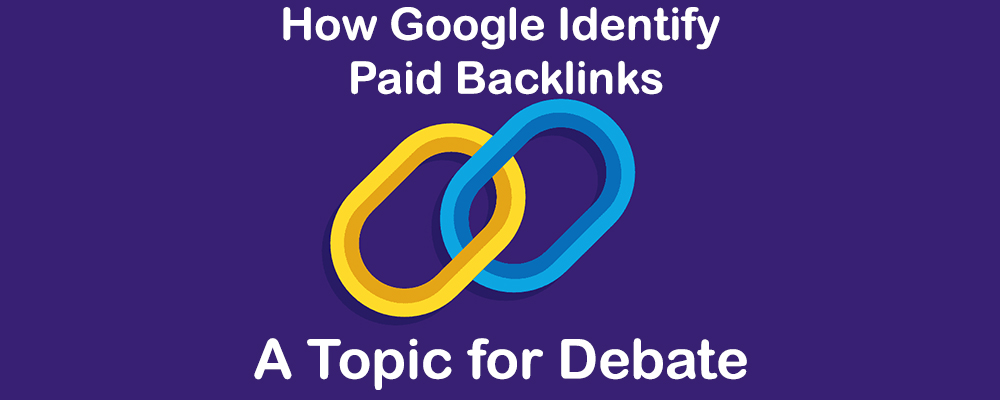
I’m sure there are a lot of rumors and a lack of knowledge on how Google Identify if a Backlink is paid or if it’s being used genuinely.
What do you think on your personal level? How Google identify paid backlink from Linked to websites and Linked from websites? Share your thoughts through a quick comment below.
We can’t deny the fact, paid backlinks can give benefits in multiple ways;
- generating high-quality referral traffic
- boost in SERP rankings
- enhancing the brand reputation over the search, etc
But, how Google will come to know even if the Niche based backlink is a paid one or a unpaid link?
Let’s start with the Debate!
How Does Google Identify the Paid Backlinks?
Recently, Roger Montti published a post on SEJ in which he shared John Mueller’s answer to a question asked by a user.
“We do use links in our ranking algorithms. We use a ton of other factors as well. So it’s not the case that links is the one thing that will make your website show up in the search results, regardless of what other people do.”
The question asked by the user was.
Are backlinks important in ranking factors? Because nowadays 80 to 90% of websites are buying backlinks which I think is very unethical.
But these websites are also ranking on the first page. Why?
We all know that there are more than just 200 search engine ranking factors that are considered for the rankings.
But the other aspect of this question arises… How does Google understand if the links coming to any website are Paid or Unpaid links?
Since backlinks are one of the factors for SERP rankings and the user is claiming 80 to 90% of websites are buying backlinks of his industry, then why those sites are still ranking even after the fact Google never encourages Paid Backlinks.
Whereas backlinks play 10% of the role in the rankings out of all 200+ rankings factors, those websites should be downvoted, Logically.
Coming out of this Controversial stuff, I’ll stick to my question How Google Determines if the backlinks are paid or unpaid?
What do I think about this?
Well, my intuition says, Google crawlers must understand the content of both the pages to judge if the Outbound link is being put for the Information Purpose or if it is linked to promoting any product or service.
I mean, how can any Travel Blogger link to any Tour Package Page from his blog which got written on his personal experience on “Bali Vacation”. That’s the first thing.
Secondly, I agree the guy can mention the name of the travel agency from where he opted for the travel package.
Thirdly, he can in fact mention all his expenses occurred for the Bali vacation…
But linking to the Bali travel package page is an extra effort from his end and he may need to search again on Google to rediscover that package page or may need to check his browser history.
This is an extra effort for him and he will avoid doing this if there are no Personal Benefits?
But on the other hand, if the same travel blogger links to a website that got all the best seasons mentioned to travel or spend holidays in Bali, will be more useful and informative for his audience and will automatically look like an unpaid backlink instead of a Paid One.
Such backlinks could be called as Outreached Backlinks as well, which is fine. But an Outbound link towards a Package Page is a matter for Discussions 😛
Like others, I’m also assuming at my personal level on How Google may identify outbound links as Paid or non-Paid.
What does Others May think On This?
I got a chance to visit some online posts and got into some WhatsApp conversation as well and here are my findings.
- If the website has high DA and PA, the backlink will be paid,
- If the website has a high volume of traffic, most of the outbound backlinks will be paid,
- If the website has millions of pages indexed in Google, the outbound link they giving could be paid one,
- Some also say TF (Trust Flow) and CF (Citation Flow) matters to judge the backlink type (Paid or non-Paid)
Apart from this, there are many posts online that mention the name of the website that sells backlinks and those are the BIG FISHES of the industry. (Perform a Google Search For this)












